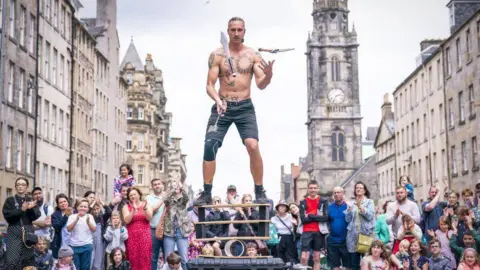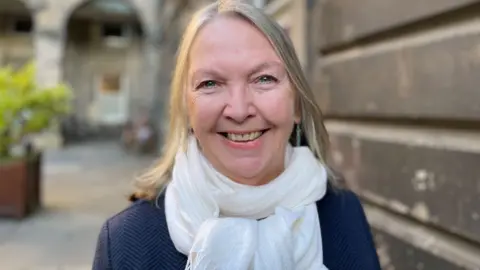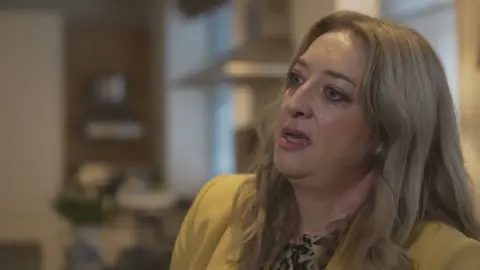Edinburgh becomes first 'tourist tax' city in Scotland
 PA Media
PA MediaVisitors to Edinburgh will be charged a tourist tax designed to raise £50m annually, after city councillors voted in favour of the move.
The charge, which mimics those already used in Germany, Spain and Italy, covers hotels, bed and breakfasts, self-catering accommodation as well as rooms and properties let through websites like Airbnb.
City of Edinburgh Council has said the levy of 5% will take effect from 24 July 2026 and the revenue raised will be spent on infrastructure improvements.
But some businesses are concerned that it will put visitors off visiting the city and that it is being rushed in before systems are ready.

Council leader Jane Meagher said it was one of the most important injections of funding in the city for decades, and visitors and residents would quickly see the benefits.
"They will see cleaner streets, they will see quicker removal of graffiti, better environmental improvements, more attractive spaces and better transport connections," she said.
"They will see lots of improvements across the city, not just in the city centre."
She added some of the money would go towards affordable housing, to enable people working in the city to find somewhere to live.
"We're getting strong messages from employers in the hospitality sector that they're struggling to recruit people to jobs because rents and mortgages are so high and they can't afford to live near where they work," she said.

However, there are concerns from some in the business community who say it will mean more administration for them.
Anna Morris, who runs a short-term let in the Newington area of the city, is also concerned it could put people off coming to Edinburgh.
"I think there is a risk that it does affect the competitiveness of Edinburgh as a destination," she said.
"It is quite an expensive destination already. I love Edinburgh, It's a brilliant place to come but people can go wherever they want - abroad and even within Scotland, there are other cities you might choose to go to.
"Everyone is watching what they spend now, and [the tax] is quite high when you think about it so there is a risk there."
But other European cities where a tourist tax has been introduced - such as Amsterdam - say they have not lost visitors and have seen many benefits.
The Dutch capital now charges 12.5% on top of accommodation bills, raising 265m Euros (£220m) a year.
The deputy mayor Hester van Buren said: "The residents are more tolerant of the tourists because they think they've contributed, and that there are also benefits from the tourists.
"We can clean the city, we can build more infrastructure, we can put money into more affordable housing for the residents so I hope the residents see the profit of it."
One of the areas hoping to benefit from any levy is Edinburgh's only city centre housing scheme, Dumbiedykes.
Jim Slaven, who has been a tenant there for 30 years, said many of the flats were now short-term lets and they lost amenities such as their community centre and shops.
"Housing is one of the major crises in the city and has been in working class areas for many years," he said.
"For years the residents of Edinburgh have been told how many hundreds of millions of pounds come into the city through tourism, so with the visitors' levy it's an opportunity for some money from tourism to be put into public services and infrastructure."
